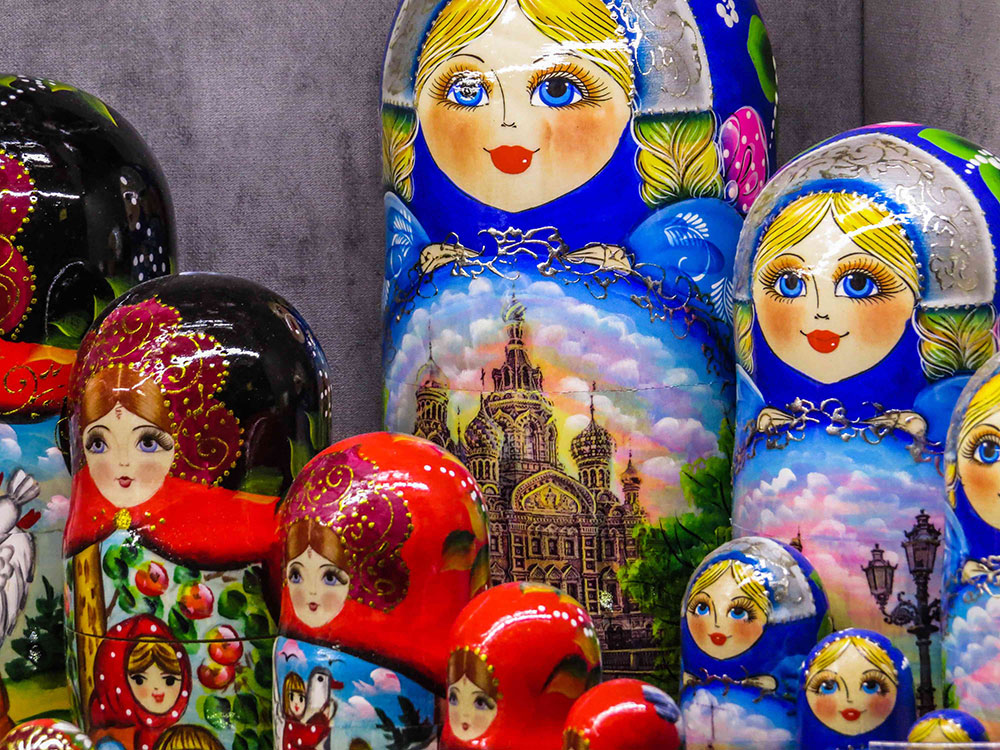- The Story of Russia
- Metropolitan Books (2022)
The title should alert us: this is a story, not a history. Author Orlando Figes, a well-known and controversial historian of Russia, certainly has plenty of historical facts in this short, well-written book. But he is telling a story based on those facts, in which a great nation struggles and fails to escape the trap it has made for itself.
As Figes tells it, Russia has spent a thousand years swinging between trying to equal the West and rejecting it in favour of its own spiritual superiority. It has been a nation of peasants ruled by powerful men who themselves obey an absolutist czar — over and over and over. Under Vladimir Putin, Russia is repeating itself yet again.
“History-writing in Russia,” Figes argues, “since its beginning in medieval chronicles, has been intertwined in mythical ideas — the myths of ‘Holy Russia,’ the ‘holy czar,’ the ‘Russian soul,’ Moscow as the ‘Third Rome,’ and so on. These myths become fundamental to the Russians’ understanding of their history and national character.”
That history, myths and all, begins in the year 862, when Slavic tribes in northwest Russia supposedly invited a Viking tribe, the Rus, to rule over them. Twenty years later the second Rus king captured Kyiv, and “Kyivan Rus, the first ‘Russian’ state, was established.”
Or maybe it was just a fairy tale. In the 18th century, the idea of Swedish Vikings founding Russia was very unpopular. But under the German-born Catherine the Great, the Swedes were transformed into Baltic Germans who had imposed autocracy on Slavs incapable of ruling themselves.
In 988, Grand Prince Vladimir, then the ruler of Kyivan Rus, converted to Orthodox Christianity after hearing arguments from the Islamic Bulgars, the German Catholics and the rabbis of the Khazars, who had converted to Judaism. That brought Russia into the orbit of the Byzantine Empire and made it aware of a splendid civilization far beyond its own. From that point, Figes argues, Russia felt itself inferior to the West, yet was determined to be seen as its equal — or its superior.
Vassals of the Golden Horde
Kyivan Rus, Figes says, developed as a “loose dynastic federation of principalities rather than a kingdom in the European sense.” Its towns prospered through trade from as far away as Anglo-Saxon England and the Mediterranean. Then the Mongols overran it in 1240 and ruled Russia directly (in the south) and indirectly (in the north) for the next 300 years. This profoundly changed the Russian story; Russian princes were no longer saintly warriors but vassals of the Golden Horde.
One such prince was Alexander Nevsky, who is remembered for defeating invasions by the Swedes and the German Teutonic Knights. But he went on to become the Mongols’ appointed grand prince and a loyal servant of their empire. Figes believes Nevsky saw the Catholic West as a greater threat than the Mongols, who at least didn’t interfere in their subjects’ religions. Suspicion of the West would remain a Russian trait.
As he moves through the centuries, Figes shows the same traits and values both recurring and reversing. Long after the Mongols, the czars fought Europeans like those in Poland and Lithuania. Aware of the wealth pouring into European nations from their overseas empires, the czars also encouraged the exploration and conquest of Siberia and Alaska.
In the 18th century, Peter the Great decided Russia could defeat the West only by becoming more like it. He founded St. Petersburg on land conquered from the Swedes and made it a European city. He also established academies and encouraged the sciences, while building the prototype of later Russian armies: enormous, badly trained and supplied but able to overwhelm enemies by sheer numbers. The boyars, landowners who provided Peter’s officials and officers, actually ran the empire.
‘If the czar only knew’
Later czars entrenched the idea of the czar as the personification of the state, the czar-batiushka, or little father, who was good by definition. And by definition, a bad czar was no czar at all and should be replaced — a concept that inspired many peasant revolts.
Although Figes doesn’t put it that way, the fall of the czars was the result of too many clashes with other empires: France and Britain in the Crimean War, endless wars with the Ottoman Empire and the humiliation of defeat by another rising empire, Japan. That resulted in one last attempt in 1905 by the peasants to bypass the czar’s evil servants and put their grievances directly to their little father, Czar Nicholas II. Hundreds died, and the Russian peasantry gave him little support in the last war of empires in 1914-18.
The October Revolution of 1917, and the resulting civil war, seemed like a complete break from czarist history. But Russia pulled away from the West even as it promoted communism as an international movement, just as Russian Orthodoxy had transcended Russia’s borders. The rise of Josef Stalin provided a new czar with a new boyar class, the Communist leaders known as the nomenklatura. Stalin’s autocracy was followed by collective leadership that produced Nikita Khrushchev, whose international adventure in Cuba nearly caused World War Three. The leadership sacked him.
Thereafter, a succession of aging mediocrities tried to preserve what Stalin had won in the Second World War. By the 1980s, when Russia was looking to the West again, Mikhail Gorbachev tried to reform the system but instead brought it down.
Oligarchs and the czar-president
Figes is excellent on how post-Soviet Russian wealth (especially fossil fuels) was first shared out to the public and then concentrated in the hands of the new oligarchs. They soon took over Russia’s embryonic democracy and prepared the way for a colourless secret policeman, Vladimir Putin, to become czar-president.
Finished in April 2022, the book has relatively little to say about the present war, though Figes does mention it in his introduction and a concluding chapter. Ukraine’s vote to secede from the U.S.S.R. in 1991, he says, doomed the Soviet Union to collapse, and Putin has long publicly asserted that it’s not a real country except as part of Holy Russia.
Figes also reports that Putin was furious when former satellite nations like Poland and Hungary joined NATO. But he must have realized that the ex-satellites would strengthen themselves in every possible way against the prospect of Russian tanks rolling through their streets again.
The clarity and simplicity of Figes’s arguments are both helpful and hazardous. We can understand the cultural forces that recur in Russian history. We can imagine how those forces, like the events in a novel, shaped Russia from czars to peasants to commissars to Putin.
A dangerous superiority
But that tempts us to a dangerous sense of superiority. In ironic literature, we understand the characters’ predicament better than they do. We feel we know the Russians better than they know themselves, just as we understand Winston Smith, the doomed hero of George Orwell’s Nineteen Eighty-Four, better than he knows himself.
But what about our own story? Perhaps the Russians, in their long study of the West, now think they know us better than we know ourselves. That might be the basis of their support for Trump and their incessant flooding of social media with lies and abuse: they know some of us, at least, will eat it up.
Clearly Canada and the West need to support Ukraine until it can force Russia to withdraw to its own territory and end the war. Otherwise, Putin and his successors would absorb Ukraine and move methodically on to retake Moldova, the Balkans, Poland and the Baltic republics.
Hungary, as objectively fascist as Russia, wouldn’t need to be conquered. Finland, with the population of B.C., can field a wartime army of 280,000 and has the largest artillery capability in western Europe; the Russians might think twice about invading it again.
The story of Russia is far from over, and far from entirely evil. But like many stories, it has gotten away from its authors. The story now needs firm, sensitive editing — preferably by the authors themselves, when they realize they have written themselves into a dead end. ![]()

















Tyee Commenting Guidelines
Comments that violate guidelines risk being deleted, and violations may result in a temporary or permanent user ban. Maintain the spirit of good conversation to stay in the discussion and be patient with moderators. Comments are reviewed regularly but not in real time.
Do:
Do not: